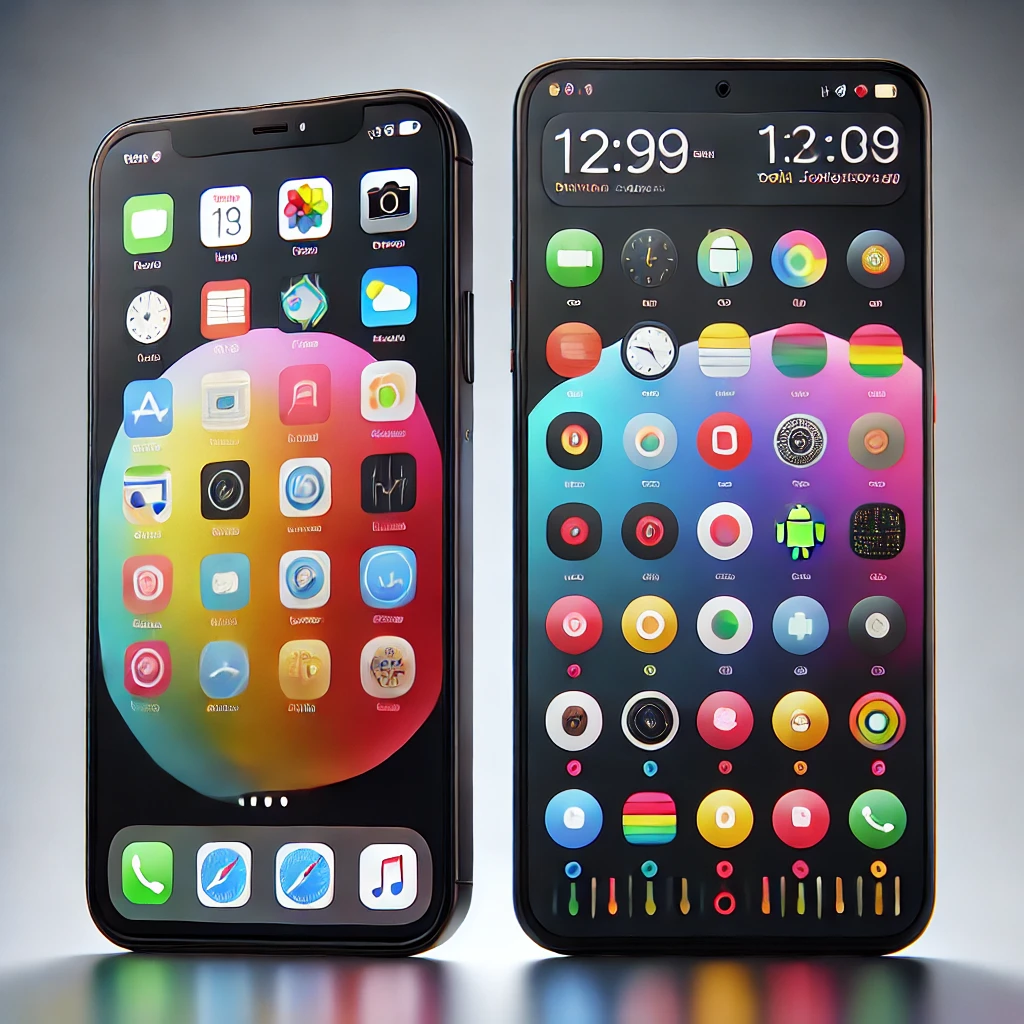Introduction
Choosing between an iPhone and an Android phone can be challenging, as both offer unique features and advantages. This guide will compare the two platforms based on various factors such as performance, features, and overall experience, helping you decide which is the best choice for you.
Description
iPhone is developed by Apple and runs on iOS, a highly optimized and user-friendly operating system. Android, on the other hand, is an open-source platform primarily developed by Google and is used by various manufacturers like Samsung, Google, and Xiaomi. Both platforms cater to different needs and preferences.

Classification
1. iPhone:Exclusive to Apple devices like the iPhone.Known for its seamless ecosystem, premium design, and regular updates.
2. Android:Used by multiple brands, offering a wide range of devices at various price points.Highly customizable, with a variety of features tailored to different users.
Comparison: iPhone vs. Android
1. Design and Build Quality
iPhone: Premium materials, uniform design, and attention to detail.
Android: Varies depending on the manufacturer; some offer equally premium designs, while others focus on affordability.
2. Performance
iPhone: Consistently smooth performance due to Apple’s optimized hardware-software integration.
Android: Performance depends on the device; flagship models rival or exceed iPhones, while budget options may lag behind.
3. Camera
iPhone: Renowned for consistent image quality and realistic colors, especially in video recording.
Android: High-end models (like Samsung Galaxy S series and Google Pixel) offer superior flexibility with advanced features such as zoom, night mode, and AI enhancements.
4. Ecosystem
iPhone: Seamless integration with Apple devices (MacBook, iPad, Apple Watch).
Android: More variety in brands and devices but lacks a unified ecosystem.
5. Customization
iPhone: Limited customization options but highly user-friendly.
Android: Offers extensive customization for widgets, themes, and user interface.
6. Problems
iPhone:
Expensive, even for older models.
Limited storage options without expandable memory.
Less flexibility for users wanting more control over the device.
Android:
Inconsistent software updates across brands.
Some budget models may have lower durability or performance.
Fragmentation issues, leading to varying app experiences.
Which One is the Best Choice?
For simplicity and reliability: Choose an iPhone. It’s ideal if you value premium quality, regular updates, and seamless integration within an ecosystem.
For variety and flexibility: Go with Android. It’s better if you want a wider price range, customization, or cutting-edge hardware in some models.
Conclusion
The decision between an iPhone and an Android phone ultimately depends on your needs, preferences, and budget. iPhones provide a premium, streamlined experience, while Android offers diversity and adaptability. Consider your priorities—whether it’s design, performance, or customization—and choose the platform that aligns best with your lifestyle.

